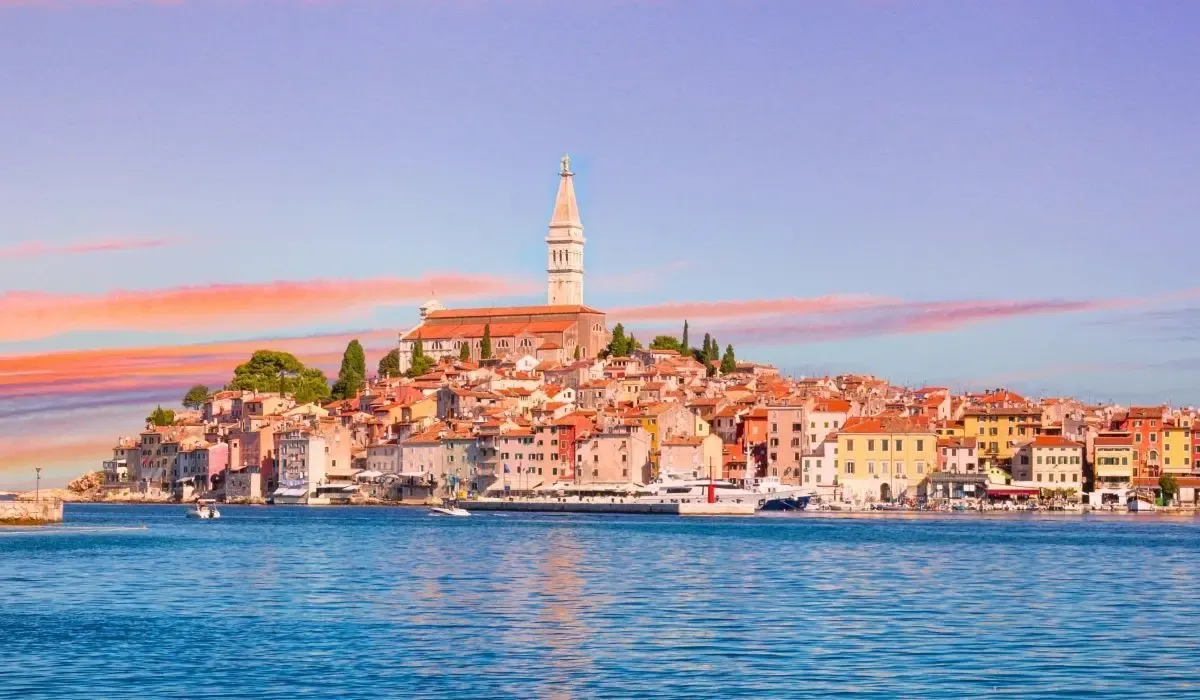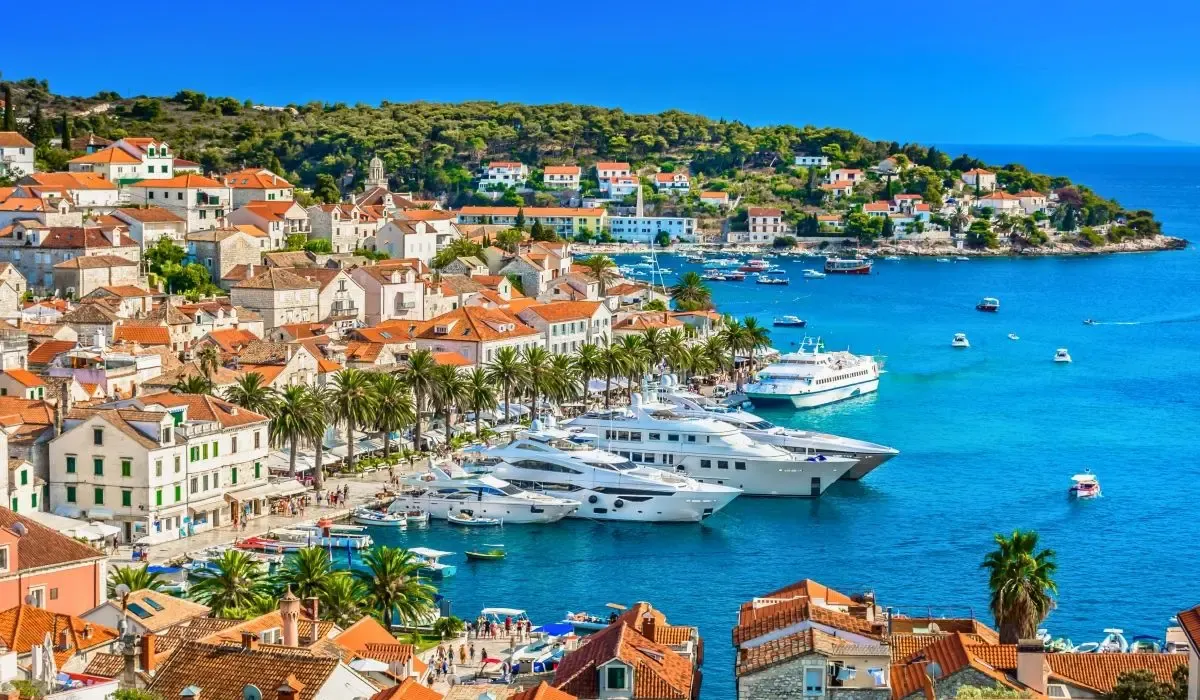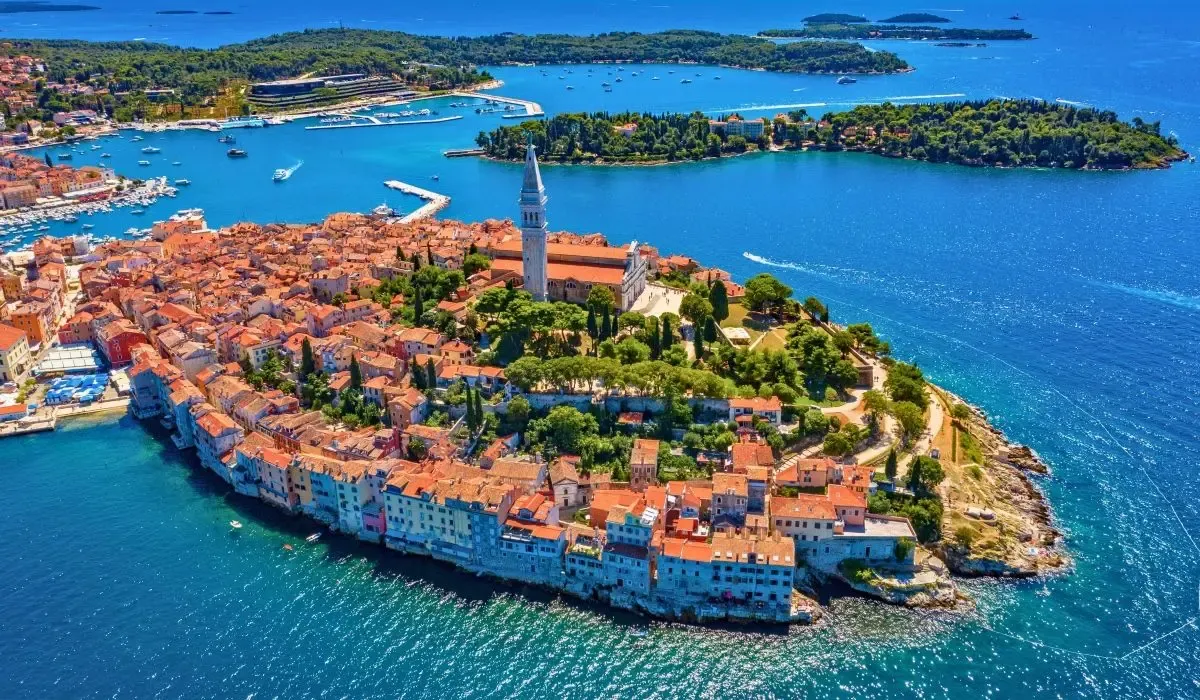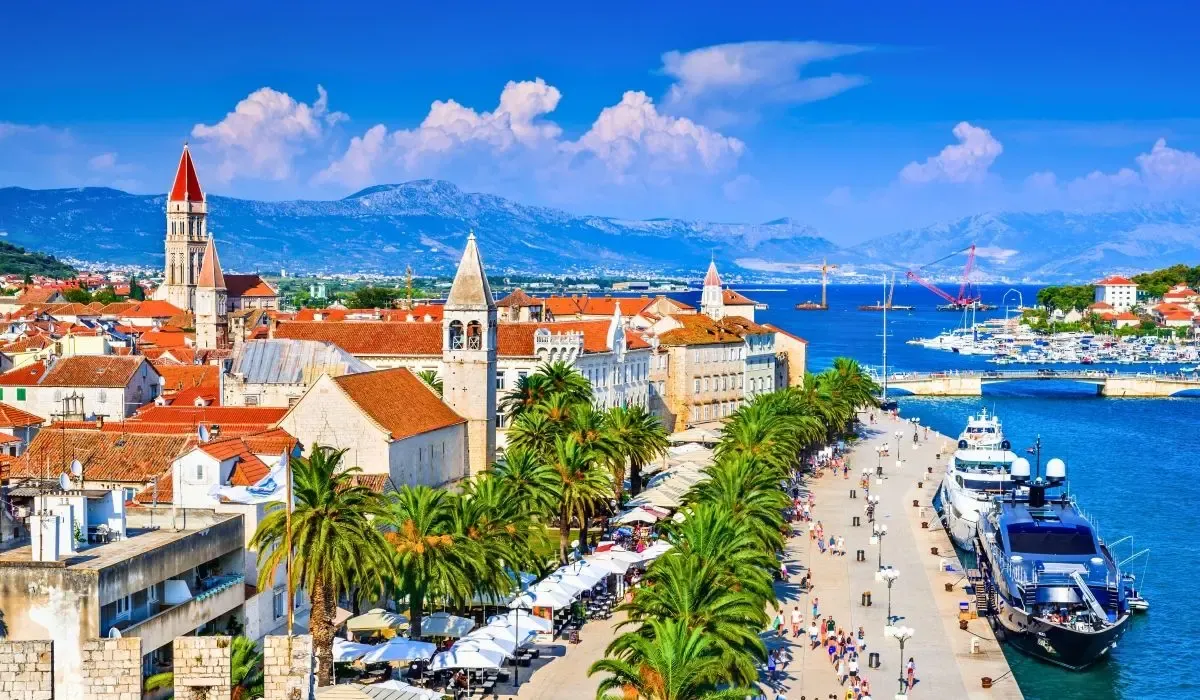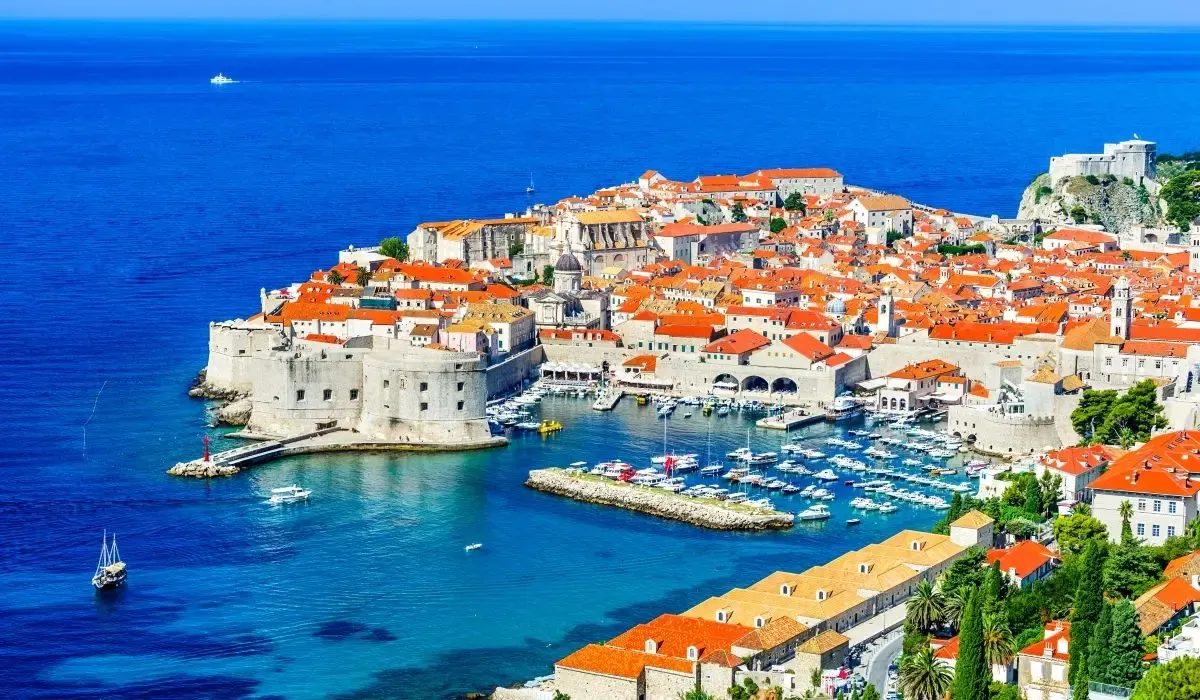Guide for Canadians Buying Property in Croatia
Buying real estate in Croatia from Canada? MTFX makes it easy to convert Canadian dollars to euros (EUR)- now the official currency of Croatia. Whether you're purchasing a seaside home in Split or an inland getaway in Istria, MTFX ensures low-cost, secure transfers to Croatian escrow accounts, developers, or lawyers. Get better-than-bank exchange rates, protect against currency volatility, and simplify your overseas purchase with MTFX.
Are you currently considering the prospect of purchasing property abroad? If so, embarking on this exciting journey involves a series of essential steps that you should be familiar with. Let MTFX lead you through vital steps in buying property in Croatia, ensuring your preparation and comprehensive understanding of the process.
Croatia, a picturesque nation with attractions, boasts a Mediterranean climate that gifts warm, sun-kissed summers and gentle winters. This delightful weather welcomes nature lovers to enjoy the country's beauty. With countless attractions and activities, it's no surprise that more and more Canadians are drawn to the idea of buying property in Croatia.
Advantages of buying property in Croatia for foreigners
Buying property overseas offers foreign investors numerous advantages, from attractive prices and strong rental income potential to the allure of an exceptional quality of life. Croatia stands out as a compelling destination for those looking to purchase property abroad, whether for investment purposes, vacation retreats, or retirement plans.
Access to a growing real estate market
Croatia's real estate market has been steadily growing, driven by tourism and foreign investment. Property values, especially in coastal areas and on the islands, have shown appreciation over time, making it a strong investment option for foreigners looking for both vacation homes and profitable rentals.
Breathtaking coastal and island locations
Croatia's Adriatic coast is renowned for its stunning beaches, crystal-clear waters, and picturesque islands. Foreign buyers are drawn to its coastal charm and idyllic scenery, which makes properties in these areas not only a pleasure to own but also highly desirable for rentals.
Affordable property prices
Compared to other Mediterranean destinations such as Italy, Spain, or France, property prices in Croatia are relatively affordable, especially for coastal properties. This makes it an appealing option for foreigners seeking a Mediterranean lifestyle without the premium cost.
Residency and EU benefits
Foreigners from EU countries can purchase property in Croatia under the same conditions as Croatian citizens, making investing easier for EU nationals. Additionally, owning property can help non-EU citizens qualify for residency permits, allowing them to spend more time in the country.
Favourable climate
Croatia enjoys a Mediterranean climate with hot summers and mild winters, particularly along the coast and islands. This makes it an attractive destination for foreign buyers, especially those looking for a vacation home or a place to retire with pleasant weather year-round.
Ease of ownership and low taxes
Buying property in Croatia is relatively straightforward for foreigners, particularly with the help of a local real estate agent and legal support. Property taxes in Croatia are also relatively low compared to other European countries, which can help reduce ongoing ownership costs.
High quality of life
Croatia offers a high quality of life with excellent healthcare, a slower pace of living, and easy access to fresh, local food and outdoor activities. The laid-back Mediterranean lifestyle appeals to many foreign buyers looking to escape the hustle and bustle of more urban settings.
The cost of buying property in Croatia
Real estate prices in Croatia have been steadily rising in recent years, yet there are still opportunities to find favourable deals for those who know where to look. In popular tourist regions, prices tend to be higher compared to other parts of the country. It’s important to factor in additional costs, such as the stamp duty and legal fees, when purchasing property.
Additionally, if you’re converting money from CAD to EUR to complete your property purchase in Croatia, be mindful of exchange rate margins and other transfer fees. Choosing a reliable online foreign exchange provider can help you save on currency conversions and international payments.

Best places to buy property in Croatia
Below, you'll find a list of some of the finest locations to consider when buying property in Croatia. With a variety of excellent choices at your fingertips, you're bound to discover the ideal spot that suits you perfectly.
Dubrovnik
Known as the "Pearl of the Adriatic," Dubrovnik offers stunning coastal views, historical charm, and a strong tourist market. It's one of the most popular places for property investment due to its UNESCO World Heritage status and high rental demand.
Split
Split is a vibrant coastal city with a rich history, featuring beautiful beaches and a bustling economy. It's a great place for those seeking a mix of urban living and access to the sea, making it attractive for both residential and rental properties.
Hvar Island
Hvar is known for its luxurious lifestyle, crystal-clear waters, and stunning beaches. It's one of Croatia's most sought-after locations for coastal properties, especially for those looking to invest in vacation homes or rental properties.
Zadar
Zadar offers a more affordable option compared to Dubrovnik or Split but with equally stunning coastal views and a rich cultural scene. The city is popular among buyers seeking a balance of affordability, beauty, and strong rental potential.
Istria Peninsula
Often compared to Tuscany, Istria is famous for its rolling hills, vineyards, and proximity to Italy. Towns like Rovinj and Poreč offer beautiful coastal properties with a Mediterranean vibe, attracting vacation home buyers and those looking to relocate.
Makarska Riviera
The Makarska Riviera is renowned for its breathtaking beaches and clear waters. It's a popular spot for tourists, making it an ideal location for those looking to invest in vacation rentals or second homes with a strong rental market.
Korčula Island
Often called "Little Dubrovnik," Korčula is known for its medieval charm, beautiful beaches, and quieter lifestyle. It's an excellent place for those looking for a more tranquil and scenic coastal property.
Brač Island
Brač offers a mix of luxurious villas and affordable apartments, especially in popular areas like Bol, famous for the Zlatni Rat beach. It's a great option for buyers interested in a mix of investment properties and personal vacation homes.
What to consider when buying property in the Croatian Islands?
Buying property on Croatian islands offers the chance to own a piece of paradise, whether for personal use or as an investment. With a variety of islands to choose from, each offering different lifestyles and property types, it’s essential to conduct thorough research to find the perfect spot that aligns with your goals. Many buyers also benefit from reading a practical guide for Canadians looking to buy properties or consulting a property expert. Here are a few important things to consider when buying property.
Foreign ownership rules: EU citizens can buy property in Croatia just like locals. For non-EU citizens, it is still possible to buy property, but certain restrictions apply. It's essential to verify the legal requirements before purchasing, especially regarding coastal and agricultural land.
Property types: You'll find a mix of traditional stone houses, modern villas, and apartments on the islands. Many properties are sold as second homes or vacation rentals, making them ideal for investment.
Infrastructure and accessibility: Some islands are more developed with better infrastructure, while others offer a more remote and peaceful experience. Check ferry schedules, airports, and availability of utilities like electricity, water, and internet before choosing an island property.
Tourism and rental potential: Croatian islands are popular tourist destinations, meaning there is potential for rental income during the high season. However, consider the seasonal nature of tourism, as many islands have less activity in the off-season.
Living in Croatia as a Canadian
Living in Croatia as a Canadian offers an opportunity to experience a beautiful, historically rich country with a relaxed lifestyle, lower cost of living, and warm Mediterranean climate. Whether you're looking to retire, work remotely, or simply enjoy a long-term stay, Croatia provides a unique and welcoming environment.
- Canadians can stay in Croatia for up to 90 days within a 180-day period without a visa.
- Temporary residence permits are available for extended stays (work, study, property ownership).
- Affordable cost of living compared to Canada, especially in smaller towns and islands.
- Croatia offers a public healthcare system with mandatory health insurance for residents.
- English is widely spoken, but learning basic Croatian is helpful in smaller towns.
- Beautiful scenery, Mediterranean lifestyle, and rich cultural experiences.
- Canadians can buy property in Croatia due to reciprocity agreements.
- Croatia has a digital nomad visa for remote workers, valid for up to 12 months.
- Mediterranean climate along the coast with hot summers and mild winters.
- Double taxation treaty between Canada and Croatia to avoid being taxed in both countries.
- Active expat communities in larger cities like Zagreb, Split, and Dubrovnik.
How to buy property in Croatia as a foreigner?
Step 1 - Check eligibility: Ensure your country has a reciprocity agreement with Croatia. For Canadians and citizens of EU countries, buying property is allowed under the same conditions as Croatian citizens.
Step 2 - Hire a local real estate agent: Work with a reputable local real estate agent familiar with the market and the legalities involved in purchasing property as a foreigner.
Step 3 - Find a lawyer: It's essential to have a Croatian lawyer to help with due diligence, including verifying the property's title and ensuring there are no legal disputes or outstanding debts.
Step 4 - Select the property: Choose a property that fits your needs and budget. Croatia offers a variety of properties, from coastal homes to inland real estate in cities and rural areas.
Step 5 - Perform due diligence: Have your lawyer check the Land Registry to confirm that the title is clear and that the seller has full ownership of the property. They will also ensure that there are no outstanding legal issues or liens on the property.
Step 6 - Sign the pre-contract agreement: Once the due diligence is complete, sign a pre-contract agreement (predugovor) with the seller. This typically involves a 10% deposit to secure the property.
Step 7 - Pay property transfer tax: As a foreign buyer, you will need to pay the 3% property transfer tax. This is based on the appraised value of the property.
Step 8 - Final purchase agreement: Choose a reliable money transfer platform to send money from Canada for the deposit and other expenses. After paying the deposit, a final contract is signed between you and the seller. The remaining balance of the property price is due at this stage.
Step 9 - Register ownership: Once the final contract is signed, your lawyer will register your ownership at the local Land Registry. This step officially transfers the property title to your name.
Step 10 - Receive approval for non-EU citizens: If you're a non-EU citizen, you may need to apply for Ministry of Justice approval, which usually takes 30–60 days. This does not apply if you are an EU citizen or come from a country with reciprocity agreements.
How to pay for a property purchase in Croatia?
To cover the costs of your property in Croatia, it's crucial to understand the local currency and its conversion process. Croatia adopted the Euro as its official currency in 2023, replacing the Kuna. It's imperative to adhere to legal requirements when making payments, whether you're an individual private citizen or a business owner. This means you have to convert Canadian dollars into euros. Given the fluctuating nature of exchange rates, it's essential to stay updated with trends and aim to secure the best possible deal.
How to get the best EUR/CAD exchange rate?
Factoring in the exchange rate between two countries is vital when purchasing property. An unfavourable exchange rate means you'll need more funds to buy property in that country compared to a favourable exchange rate. If you're considering foreign property investment, closely monitoring exchange rates ensures you secure a favourable deal. However, it is important to stay informed about the EUR/CAD exchange rate while buying property in Croatia.
Ways to buy property in Croatia as a Canadian
To choose the best method for your payment, you must know about several ways to pay for property purchases. Here are some ways to transfer money overseas:
Bank transfer: This can be a traditional option. However, Banks typically charge terrible exchange rates and high fees for international transfers.
Money service provider: One of the most secure ways to transfer money from Canada is to use a reliable online foreign exchange provider like MTFX, which offers competitive rates and transparent, no hidden fees.
Can I use my bank to convert Canadian dollars to Euros?
There are a few reasons why banks are not a good choice for currency conversions and money transfers when buying a property in Croatia.
- They charge high fees for international transfers.
- Additionally, the exchange rates offered by banks are not very competitive.
- The process of transferring money through a bank can be slow.
- Bank transfers can be unreliable, with transactions sometimes being cancelled or delayed.
Why choose MTFX for CAD to EUR conversion and global payments?
MTFX is a smart choice for transferring money overseas due to these reasons. We offer competitive rates and have a variety of transferring options to choose from and help you save up to 3-5% on your exchange rates. Our money transfer service takes only 24-48 hours to complete your transaction. MTFX also provides exceptional customer service and is always available to help with any questions or concerns.
We provide a range of currency tools, including historical rates, so you can monitor where the market is heading and make informed decisions. Moreover, if you don't find the desired rate, you can set up a CAD to EUR rate alert, so you'll be notified when the rate hits your preferred level.
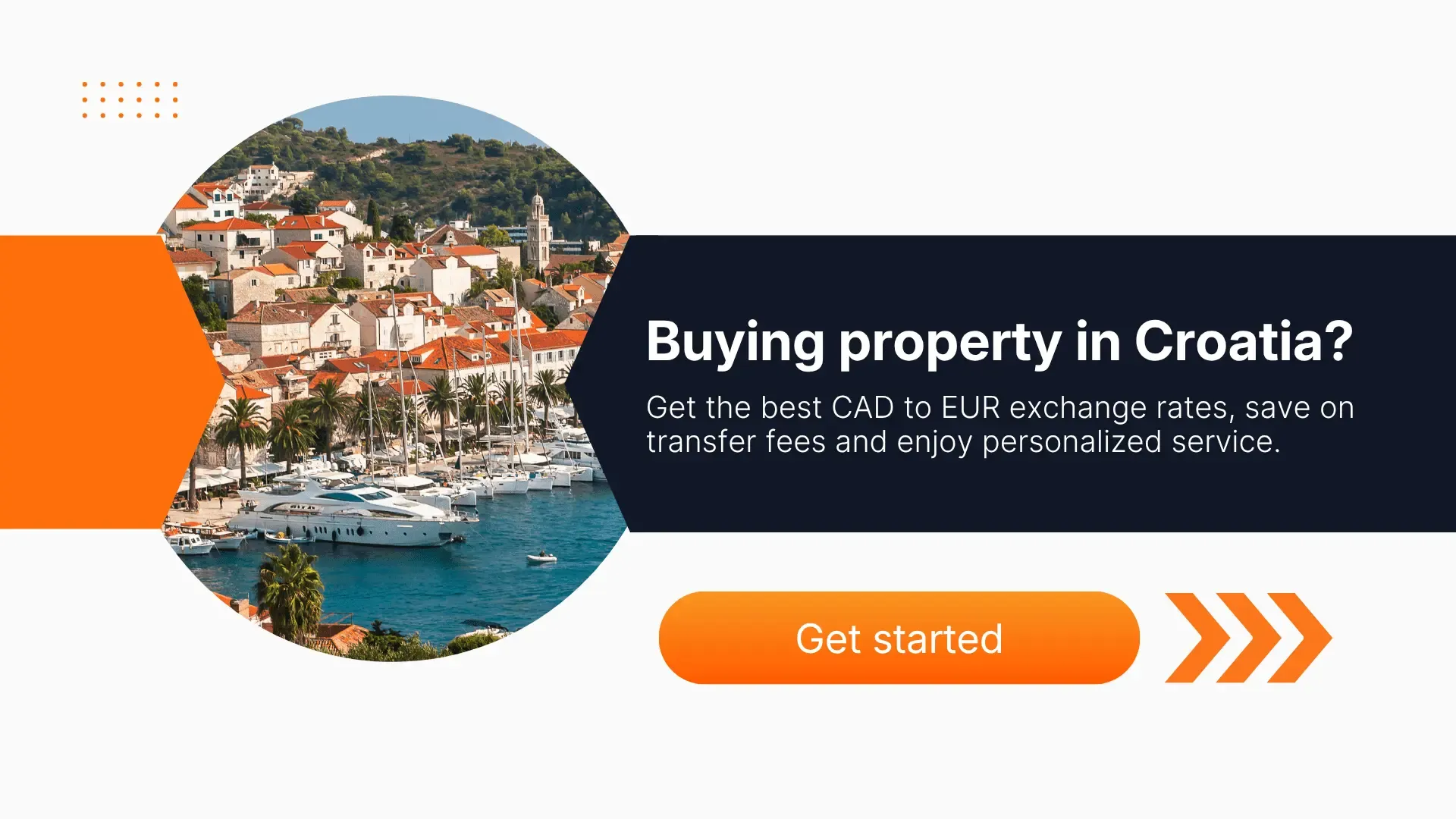
Purchasing property in Croatia can be a significant investment, but keep in mind that the closing costs, including currency conversions, can be high if you are using the bank. However, using an online service provider like MTFX, you can get the best possible exchange rates and save money on your purchase. Additionally, MTFX experts can help you with any currency-related needs, such as sending money or making payments on your Croatian property.
Open an account today and enjoy competitive exchange rates, low transfer fees, and quick, easy international money transfers.
FAQs
1. Can Canadians legally buy property in Croatia?
Yes- Canadians can buy residential property in Croatia on a reciprocity basis, subject to Ministry of Justice approval.
2. What currency is used in Croatian real estate transactions?
Croatia adopted the euro (EUR) in 2023. All transactions are now settled in EUR.
3. How do I send money to Croatia from Canada for a property purchase?
Use MTFX to send CAD to EUR quickly and securely.
4. How long does a transfer from Canada to Croatia take?
Most transfers are delivered within 24–48 hours via MTFX’s global payment network.
5. What is today’s CAD to EUR exchange rate?
Check live rates or use our rate calculator before you plan to send money to Croatia.
6. If I sell my Croatian property, can I repatriate the funds?
MTFX facilitates the compliant repatriation of EUR proceeds to Canada.
7. Can MTFX help reduce the cost of buying in Croatia?
MTFX’s better exchange rates and lower fees can save thousands on six-figure transfers.
8. Is it better to send CAD to EUR now or wait?
Use MTFX rate alerts to time your transfer strategically.
9. Can I use MTFX to fund renovations or construction work in Croatia?
Absolutely. MTFX can handle both property acquisition and subsequent contractor payments.
10. What documents are required for a large property transfer?
You’ll typically need your ID, the sales contract, and the recipient's banking details.
Open an account today and enjoy competitive exchange rates, low transfer fees, and quick, easy international money transfers.
Related Blogs
Stay ahead with fresh perspectives, expert tips, and inspiring stories.

Keep updated
Make informed decisions
Access tools to help you track, manage, and simplify your global payments.
Currency market updates
Track key currency movements and plan your transfers with confidence.
Create an account today
Start today, and let us take the hassle out of overseas transfers.
